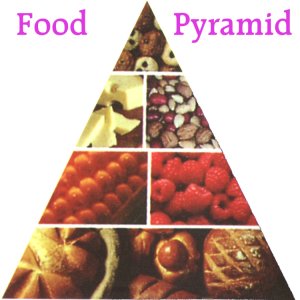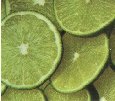| Beliefs |
| Becoming Vegan |
| Vegan Nutrition |
| Animal Ingredients |
| Recipes |
| Meal Plan |
| Vegan Restaurants |
| Vegan Organisations |
| Accommodation |
| Famous Vegans |
| Online Shop |
| Links |
| Contact Us |
| Home |
|

Vegan Nutrition
This is a simple guide to vegan nutrition. It lists the main nutrients required in the vegan diet and explains how to obtain them. You should aim to eat a wholefood, healthy, balanced diet. You should try and avoid eating too much from one category. A little of everything is the best way to obtain this. This is a general guide, but if you are still worried or just want to make sure you're not missing out on any nutrients, I advise that you take a multi-vitamin tablet. The Seven Seas company do a great vegetarian and vegan multi-vitamin table that is approved by the Vegan Society of the United Kingdom. It can be bought in large supermarkets.

Protein:-
Protein is vital in the body for growth and repair. It helps the
body renew and repair cells. This is quite easily obtained in a
vegan diet despite what you may think. Protein is in everything we
eat but it is more concentrated in certain foods.
It can be obtained from:- peas, beans, nuts and lentils, whole
grains ( eg. whole-wheat bread ), sunflower and other seeds and from some
soya milks.
Carbohydrate:-
Carbohydrate is also known as cellulose or dietary fibre. This is
necessary in the diet to aid the digestive system, in breaking down food.
It is also necessary to provide a slow release of energy over a long
period of time. A balanced vegan diet should have quite a lot of
this.
Carbohydrate is obtained from:- bread, pasta, wholegrains ( eg.
wheat, oats, barley, rice ), lentils, potatoes, and beans.
Fat:-
This is necessary to insulate the body organs, to protect them. It also provides taste and variety to our diet and gives energy. It should only be present in the diet in small amounts. In excessive amounts it can cause health problems in the long run.
Obtained from:- oils, soya margarine, nuts, seeds and seed oils.
Vitamins:-
These are necessary to keep the body in a good healthy form. There are many vitamins and each one has their own function. Here is a guide to the most common vitamins.
Vitamin A can be found in dark green vegetables, carrots, pumpkins ( see recipes ), and tomatoes. It is usually in quite plentiful supply in the vegan diet.
Vitamin B is necessary to prevent diseases of the nervous system like beri-beri. It can be found in nuts, whole-grains, muesli, pulses, yeast extract ( eg. Marmite ), leafy green vegetables and potatoes.
Vitamin B12 is usually fortifies in certain products. It can be found in fortified yeast extracts (eg. Marmite ), soya milks, TVP products and some cereals.
Vitamin C is necessary to prevent diseased like scurvy.  It is easily obtained and often in great abundance in a vegan diet.
It is found in citrus fruits - oranges, lemons, berries, green vegetables
and potatoes.
It is easily obtained and often in great abundance in a vegan diet.
It is found in citrus fruits - oranges, lemons, berries, green vegetables
and potatoes.
Vitamin D can actually be produced by some people in their bodies. It can be obtained from sunlight, some soya milks and vegan margarine.
Vitamin E is found in nuts, seeds and vegetable oils.
Minerals:-
There are quite a few different minerals, which like vitamins all have their special function in the body.
Calcium
The amount of calcium obtained by vegans seems to be adequate.
The vegan diet also seems to help the body conserve the calcium.
It is obtained from seeds, nuts, pulses, sea vegetables, grains and
molasses.
Iron
Vegan diets contain more than twice the recommended amount of iron
and anaemia is uncommon. This is according to information from
the Vegan Society of the United Kingdom.
It is obtained from seeds, nuts, pulses, grains, dried fruit, parsley,
green leafy vegetables and using cast-iron cookware!
Picture thanks to the Vegetarian Society of the United Kingdom.
© VeganIreland 2000